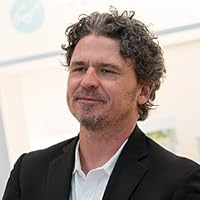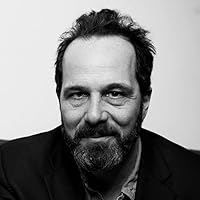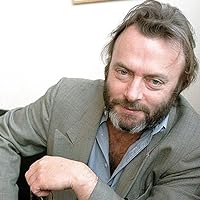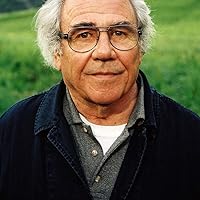Sudan Quotes
Quotes tagged as "sudan"
Showing 1-28 of 28

“Whatever I do, however I find a way to live, I will tell these stories. I have spoken to every person I have encountered these last difficult days...I speak to these people, and I speak to you because I cannot help it. It gives me strength, almost unbelievable strength, to know that you are there. I covet your eyes, your ears, the collapsible space between us. How blessed are we to have each other? I am alive and you are alive and so we must fill the air with our words. I will fill today, tomorrow, every day until I am taken back to God. I will tell stories to people who will listen and to people who don't want to listen, to people who seek me out and to those who run. All the while I will know that you are there. How can I pretend that you do not exist? It would be almost as impossible as you pretending that I do not exist.”
― What Is the What
― What Is the What

“The West's post-Holocaust pledge that genocide would never again be tolerated proved to be hollow, and for all the fine sentiments inspired by the memory of Auschwitz, the problem remains that denouncing evil is a far cry from doing good.”
― We Wish to Inform You That Tomorrow We Will Be Killed with Our Families
― We Wish to Inform You That Tomorrow We Will Be Killed with Our Families

“George Bush made a mistake when he referred to the Saddam Hussein regime as 'evil.' Every liberal and leftist knows how to titter at such black-and-white moral absolutism. What the president should have done, in the unlikely event that he wanted the support of America's peace-mongers, was to describe a confrontation with Saddam as the 'lesser evil.' This is a term the Left can appreciate. Indeed, 'lesser evil' is part of the essential tactical rhetoric of today's Left, and has been deployed to excuse or overlook the sins of liberal Democrats, from President Clinton's bombing of Sudan to Madeleine Albright's veto of an international rescue for Rwanda when she was U.S. ambassador to the United Nations. Among those longing for nuance, moral relativism—the willingness to use the term evil, when combined with a willingness to make accommodations with it—is the smart thing: so much more sophisticated than 'cowboy' language.”
― Christopher Hitchens and His Critics: Terror, Iraq, and the Left
― Christopher Hitchens and His Critics: Terror, Iraq, and the Left

“I had forgotten that, and so many things. How could I put everything down on paper? It seemed impossible. No matter what, the majority of life would be left out of this story, this sliver of a version of the life I'd known. But I tried anyway.”
― What Is the What
― What Is the What

“The issue is complex, but like many matters in Sudan, it is not as complex as Khartoum would want the west to believe.”
― What Is the What
― What Is the What

“There is a huge trapdoor waiting to open under anyone who is critical of so-called 'popular culture' or (to redefine this subject) anyone who is uneasy about the systematic, massified cretinization of the major media. If you denounce the excess coverage, you are yourself adding to the excess. If you show even a slight knowledge of the topic, you betray an interest in something that you wish to denounce as unimportant or irrelevant. Some writers try to have this both ways, by making their columns both 'relevant' and 'contemporary' while still manifesting their self-evident superiority. Thus—I paraphrase only slightly—'Even as we all obsess about Paris Hilton, the people of Darfur continue to die.' A pundit like (say) Bob Herbert would be utterly lost if he could not pull off such an apparently pleasing and brilliant 'irony.”
―
―

“The rigid rifle drill of the British infantryman had been their most potent weapon since the wars against Napoleon. Now it was the turn of the Dervishes to feel the impact of those heavy lead Martini Henry bullets. By now any European army would have staggered and might even have stopped. The Dervishes never paused, but ran forward screaming their war cries and trying to get within killing distance of the steady lines of men before them.”
― No Road to Khartoum
― No Road to Khartoum

“But without William K, I would have forgotten that I had not been born on this journey. That I had lived before this.”
― What Is the What
― What Is the What

“This morning there s first a predictable story about Darfur; an expert on African affairs notes that seven thousand African Union troops patrolling a region the size of France have been ineffectual in preventing continued janjaweed terror. Funding for the troops is about to run out, and it seems that no one, including the United States, is ready to put forth more money or come up with new ideas to stop the killing and displacement. This is not surprising to those of us who lived through twenty years of oppression by the hands of Khartoum and its militias.”
― What Is the What
― What Is the What
“And there’s one other matter I must raise. The epidemic of domestic sexual violence that lacerates the soul of South Africa is mirrored in the pattern of grotesque raping in areas of outright conflict from Darfur to the Democratic Republic of the Congo, and in areas of contested electoral turbulence from Kenya to Zimbabwe. Inevitably, a certain percentage of the rapes transmits the AIDS virus. We don’t know how high that percentage is. We know only that women are subjected to the most dreadful double jeopardy.
The point must also be made that there’s no such thing as the enjoyment of good health for women who live in constant fear of rape. Countless strong women survive the sexual assaults that occur in the millions every year, but every rape leaves a scar; no one ever fully heals.
This business of discrimination against and oppression of women is the world’s most poisonous curse. Nowhere is it felt with greater catastrophic force than in the AIDS pandemic. This audience knows the statistics full well: you’ve chronicled them, you’ve measured them, the epidemiologists amongst you have disaggregated them. What has to happen, with one unified voice, is that the scientific community tells the political community that it must understand one incontrovertible fact of health: bringing an end to sexual violence is a vital component in bringing an end to AIDS.
The brave groups of women who dare to speak up on the ground, in country after country, should not have to wage this fight in despairing and lonely isolation. They should hear the voices of scientific thunder. You understand the connections between violence against women and vulnerability to the virus. No one can challenge your understanding. Use it, I beg you, use it.”
―
The point must also be made that there’s no such thing as the enjoyment of good health for women who live in constant fear of rape. Countless strong women survive the sexual assaults that occur in the millions every year, but every rape leaves a scar; no one ever fully heals.
This business of discrimination against and oppression of women is the world’s most poisonous curse. Nowhere is it felt with greater catastrophic force than in the AIDS pandemic. This audience knows the statistics full well: you’ve chronicled them, you’ve measured them, the epidemiologists amongst you have disaggregated them. What has to happen, with one unified voice, is that the scientific community tells the political community that it must understand one incontrovertible fact of health: bringing an end to sexual violence is a vital component in bringing an end to AIDS.
The brave groups of women who dare to speak up on the ground, in country after country, should not have to wage this fight in despairing and lonely isolation. They should hear the voices of scientific thunder. You understand the connections between violence against women and vulnerability to the virus. No one can challenge your understanding. Use it, I beg you, use it.”
―

“By the standards of the European industrial world we are poor peasants, but when I embrace my grandfather I experience a sense of richness as though I am a note in the heartbeats of the very universe. He is no towering oak tree with luxurious branches growing in a land on which Nature has bestowed water and fertility, rather he is like the sayal bushes in the deserts of the Sudan, thick of bark and sharp of thorn, defeating death because they ask so little of life.”
― Season of Migration to the North
― Season of Migration to the North

“Any critique of realism must begin with a sober assessment of the horrors of peace.”
― The Quotable Hitchens from Alcohol to Zionism: The Very Best of Christopher Hitchens
― The Quotable Hitchens from Alcohol to Zionism: The Very Best of Christopher Hitchens

“I heard Mansour say to Richard, ‘You transmitted to us the disease of your capitalist economy. What did you give us except for a handful of capitalist companies that drew off our blood — and still do?’ Richard said to him, ‘All this shows that you cannot manage to live without us. You used to complain about colonialism and when we left you created the legend of neo-colonialism. It seems that our presence, in an open or undercover form, is as indispensable to you as air and water.’
They were not angry: they said such things to each other as they laughed, a stone’s throw from the Equator, with a bottomless historical chasm separating the two of them.”
― Season of Migration to the North
They were not angry: they said such things to each other as they laughed, a stone’s throw from the Equator, with a bottomless historical chasm separating the two of them.”
― Season of Migration to the North

“So, your friends call you Bastian. Your enemies call you asshole. What do lovers call you?”
“Why do you want to know?”
She smiled up at the stars. “Future reference.”
― Catalyst
“Why do you want to know?”
She smiled up at the stars. “Future reference.”
― Catalyst

“And she found her voice. "Thank you," she said, and looked up at him bravely. "Thank you for bringing the water.”
― A Long Walk to Water
― A Long Walk to Water

“This war has made racists of too many of the and too many of us, and it is the leadership in Khartoum that has stoked this fire, that has brought to the surface, and in some cases created from whole cloth, new hatreds that have bred unprecedented acts of brutality.”
―
―

“Birey, televizyondaki Sudan İç Savaşını herhangi bir tuvalet kağıdı reklamıyla aynı duyarsızlıkla izlemektedir. Televizyonu kapattıktan sonra, Sudan’da ki iç savaş devam etse bile, onun için bitmiştir.”
―
―

“I’m going to make an exception for you. If you want to study me – every inch of me – I’m willing to be your lab rat.”
“Well, I’d need to have research questions if it’s going to be a valid scientific endeavor.”
― Catalyst
“Well, I’d need to have research questions if it’s going to be a valid scientific endeavor.”
― Catalyst

“Friends call me Brie. You may call me Ms. Stewart.”
“Stewart? Not Prime?”
She shrugged. “I legally changed my last name to my mother’s maiden name.”
“Like Prime Petroleum changed to Prime Energy a dozen years ago? Obvious and unconvincing greenwashing.”
“I wasn’t greenwashing, I simply no longer wished to be associated with Prime Energy, and the decision to change my last name sent a clear message to Jeffrey Senior.”
― Catalyst
“Stewart? Not Prime?”
She shrugged. “I legally changed my last name to my mother’s maiden name.”
“Like Prime Petroleum changed to Prime Energy a dozen years ago? Obvious and unconvincing greenwashing.”
“I wasn’t greenwashing, I simply no longer wished to be associated with Prime Energy, and the decision to change my last name sent a clear message to Jeffrey Senior.”
― Catalyst

“I’m an aid worker. I’ve been helping South Sudanese people who’ve returned to their villages after being displaced by the civil war prepare for the rainy season, which, by all accounts, is going to suck elephant dicks this year.”
― Catalyst
― Catalyst

“Ten years ago, I attended a community meeting for an oil pipeline proposal PE was ramming through the environmental impact process in eastern Washington. I sat in the front row as you defended PE’s plan to destroy an important Traditional Cultural Property to build a pipeline that would bisect the state from the Canadian border to the Columbia River. You had no respect for the sovereignty of tribes over the land. Your plan lacked even basic environmental protection for air and water, but you defended it because you didn’t give a fuck about air Indians breathe or water Indians drink.”
― Catalyst
― Catalyst
“I have never been with detachable pieces of ancient Sudan.....! ..... We Have a lot to Do... Respect the will of the people... is inevitable..... Long live Sudan and the people of Sudan!
---------------------------------------------------
لم اكن ابدا مع انفصال قطعة من السودان ..... العريقة! .....امامنا الكثير ليتم ...احترام إرادة الشعوب ...امر حتمي ..... عاشت السودان .... عاشت بلادنا ... وعاش شعبها! ........... هشام نيبر”
―
---------------------------------------------------
لم اكن ابدا مع انفصال قطعة من السودان ..... العريقة! .....امامنا الكثير ليتم ...احترام إرادة الشعوب ...امر حتمي ..... عاشت السودان .... عاشت بلادنا ... وعاش شعبها! ........... هشام نيبر”
―

“In the innocence of youth, the world is a canvas for imagination. I didn’t see boundaries, only endless possibilities, even if they lay beyond the horizon”
― Through Tragedy and Triumph: A Life Well Traveled
― Through Tragedy and Triumph: A Life Well Traveled

“The emotional scars of FGM are as deep as the physical ones, serving as a constant reminder of the violation”
― Through Tragedy and Triumph: A Life Well Traveled
― Through Tragedy and Triumph: A Life Well Traveled

“FGM is a cycle of oppression that can only be stopped through education and collective action”
― Through Tragedy and Triumph: A Life Well Traveled
― Through Tragedy and Triumph: A Life Well Traveled

“Wars are not always fought with weapons; sometimes, they are fought with ignorance, hatred, and unconscious bias.”
― Through Tragedy and Triumph: A Life Well Traveled
― Through Tragedy and Triumph: A Life Well Traveled

“Refugees are not just escaping trauma; they are seeking opportunities to thrive.”
― Through Tragedy and Triumph: A Life Well Traveled
― Through Tragedy and Triumph: A Life Well Traveled

“My journey from Sudan forced me to confront not only the horrors of dictatorship but also the deeply ingrained stereotypes that diminish the humanity of refugees.”
― Through Tragedy and Triumph: A Life Well Traveled
― Through Tragedy and Triumph: A Life Well Traveled
All Quotes
|
My Quotes
|
Add A Quote
Browse By Tag
- Love Quotes 98.5k
- Life Quotes 76.5k
- Inspirational Quotes 73.5k
- Humor Quotes 44k
- Philosophy Quotes 30k
- Inspirational Quotes Quotes 27k
- God Quotes 26.5k
- Truth Quotes 24k
- Wisdom Quotes 24k
- Romance Quotes 23.5k
- Poetry Quotes 22.5k
- Death Quotes 20k
- Life Lessons Quotes 20k
- Happiness Quotes 19k
- Quotes Quotes 18k
- Hope Quotes 18k
- Faith Quotes 18k
- Inspiration Quotes 17k
- Spirituality Quotes 15k
- Religion Quotes 15k
- Motivational Quotes 15k
- Writing Quotes 15k
- Relationships Quotes 14.5k
- Life Quotes Quotes 14.5k
- Love Quotes Quotes 14k
- Success Quotes 13.5k
- Time Quotes 12.5k
- Motivation Quotes 12.5k
- Science Quotes 11.5k
- Motivational Quotes Quotes 11.5k

